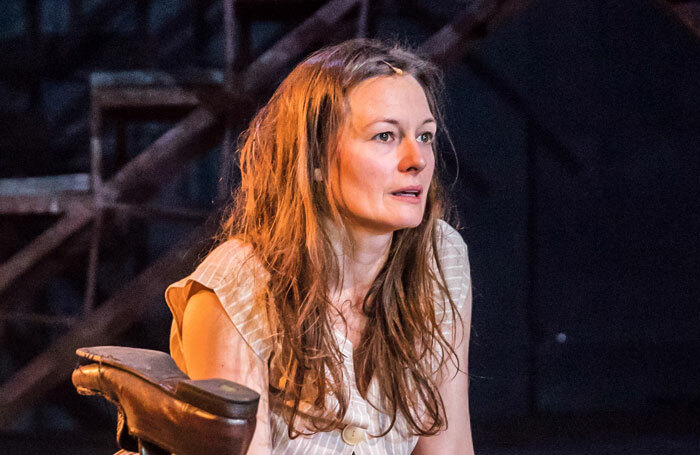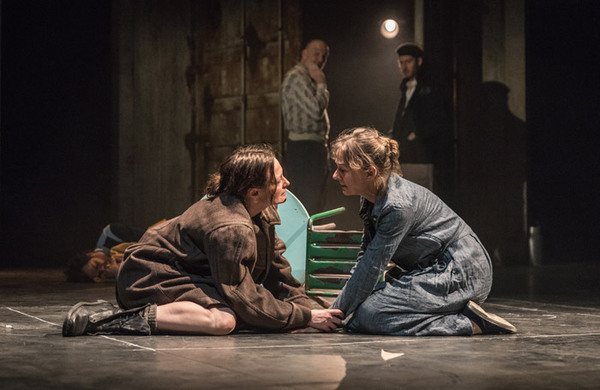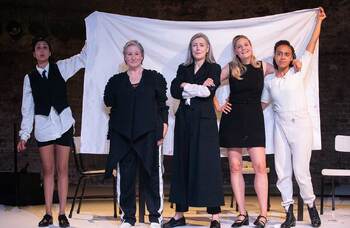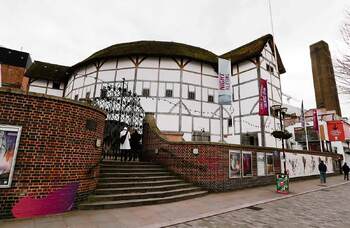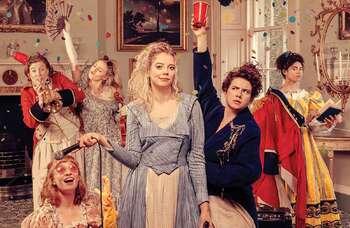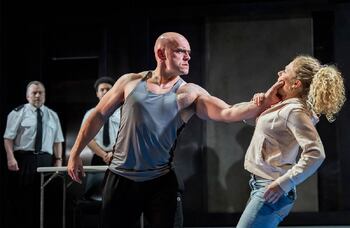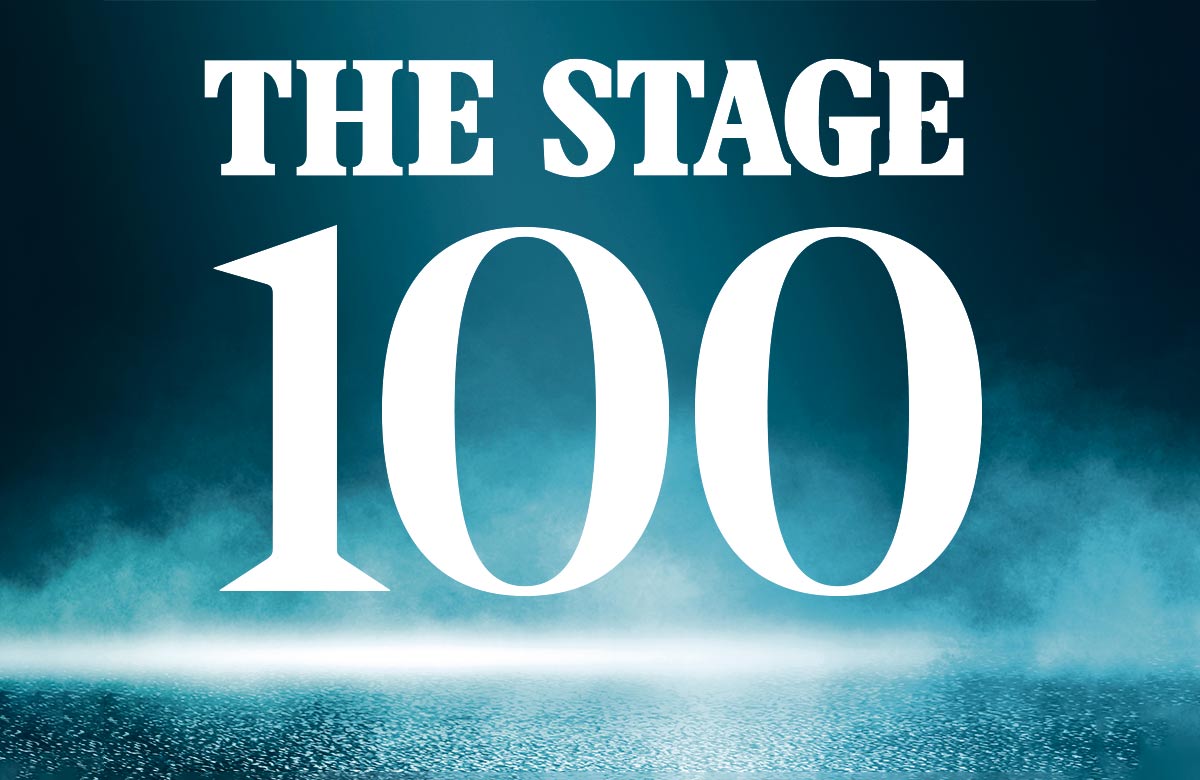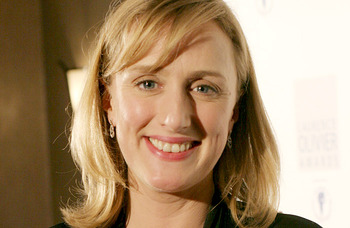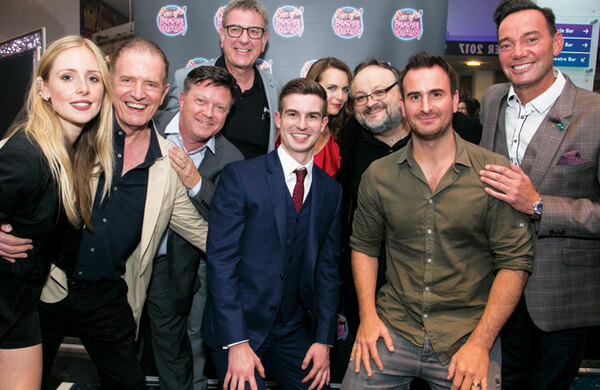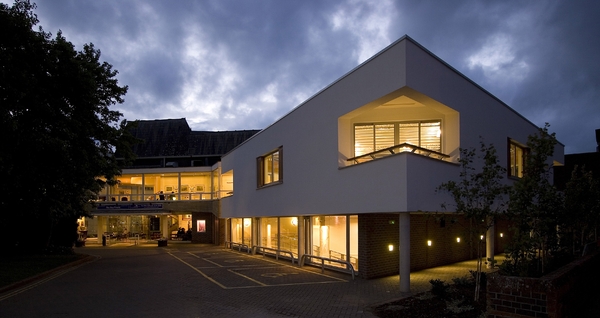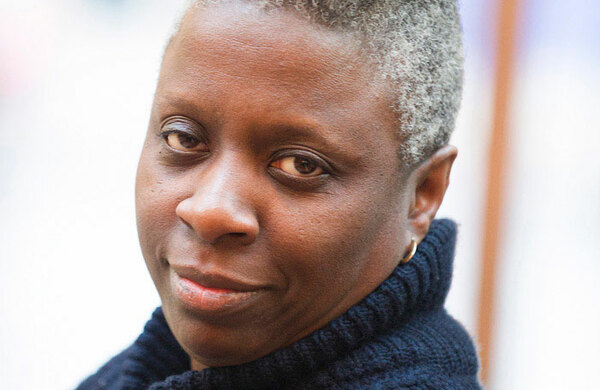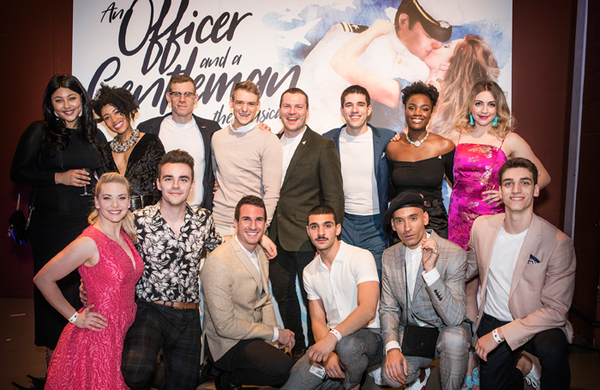Catherine McCormack interview: ‘When a job ends, you feel like you’re falling off a cliff’
Back in the mid-1990s, it looked as if Catherine McCormack was on her way to becoming a Hollywood femme fatale. Having burst on to the scene as the beautiful but doomed peasant bride of Mel Gibson’s Braveheart in 1995, she went on to play the even more alluring Venetian courtesan in the title role of Dangerous Beauty, opposite Rufus Sewell.
Other films followed – This Year’s Love, The Land Girls, Dancing at Lughnasa, Spy Game, Born Romantic – all of them well made and well received. Yet despite a succession of eye-catching screen roles, not to mention the prospect of fame and fortune, McCormack felt there was something missing, namely the stage.

“You’re very pampered if you do a high-profile film,” she says in a break from rehearsals for The Graduate. Relaxed and friendly, she seems uninterested in projecting any kind of glamorous image. “It’s all quite seductive, being paid to sit by a pool in LA while you wait to be called to an audition. I was in my 20s and I did enjoy it at the time, but it never felt entirely real. And I wasn’t massively keen on being stuck with supporting roles that didn’t test me as an actress.”
What had fired McCormack’s interest in acting in the first place was seeing Glenda Jackson play Mother Courage before she took a break from acting to become a member of parliament. “It was a colossal performance,” recalls McCormack. “I remember her silent scream after she learns of her son’s death. It was one of those rare moments in the theatre that stays with you forever.”
Having been sidetracked into a successful film career at an early age, McCormack suddenly realised, in her late 20s, that she needed to work on her acting chops by getting back to basics.
If I was forced to choose between film and theatre, I’d probably choose theatre. It’s more exciting and organic
It was the director Michael Attenborough who facilitated that urge in 1999, by casting her in Mike Cullen’s challenging and intense three-hander about false memory syndrome, Anna Weiss, in which she played the eponymous hypnotherapist whose past mirrored that of her abused patient.
From that, she landed the key role of Ann, the fiancee in Howard Davies’ 2000 revival of All My Sons at the National Theatre, a performance of “tremulous sensitivity”, as described by critic Michael Billington, for which she received an Olivier nomination. She has returned to the National three times since in a variety of roles, played Nora in A Doll’s House for Peter Hall and in 2006 delighted West End audiences with her comedic talents in The 39 Steps, in which she played three roles, including a spunky blonde hostage who manages to remove her wet stockings while handcuffed to the hero.
Continues…
Q&A: Catherine McCormack
What was your first non-theatre job? Making toasties in a pub in Selborne.
What was your first professional theatre job? Anna Weiss by Mike Cullen at the Whitehall Theatre.
What do you wish someone had told you when you were starting out? Don’t worry what other people think, just go for it.
Who or what was your biggest influence? Glenda Jackson as Mother Courage and Diane Keaton as Annie Hall.
What’s your best advice for auditions? Breathe properly and take valium.
If you hadn’t been an actor, what would you have been? In an ideal world, I’d be directing my own screenplays.
Do you have any theatrical superstitions or rituals? I keep bottles of Rescue Remedy at various points in the theatre, should I need it. I get very keyed up about press night, but as soon as it’s over I look forward to going on stage.
Though McCormack continues to make intermittent film and TV appearances – she played a Victorian aristocrat in an Emmy award-winning episode of Sherlock last year and had a small part in Woody Allen’s Magic in the Moonlight in 2014 – it is theatre that has occupied the lion’s share of her professional time over the past 10 years. So far this year has proved especially rich and rewarding, with back-to-back leading roles in the two-part My Brilliant Friend at the Rose Theatre in Kingston and Lucy Bailey’s revival of The Graduate, which has just opened at West Yorkshire Playhouse in Leeds.
She describes playing Lila in My Brilliant Friend, based on Elena Ferrante’s quartet of novels about the lives of two inseperable friends growing up in Naples (the other woman was played by Niamh Cusack), as one of her best ever acting experiences. The Telegraph’s Dominic Cavendish described McCormack as “an Italian Hedda Gabler”, while the Observer’s Susannah Clapp said her performance had “the restless intelligence of an artist”.
She says: “It is so rare that you get an opportunity to play someone from age six to 60. Afterwards, I really missed playing Lila with that fantastic company, looking into Niamh’s eyes every night. I felt completely in the moment at every performance, completely and utterly alive.”
Continues…
Luckily, she had The Graduate and Mrs Robinson to look forward to as the run at the Rose came to a close, with very little prospect of Melly Still’s highly acclaimed production transferring anywhere else, at least for the time being.
Did the two characters, Lila and Mrs Robinson, have anything in common?
“I think both women are fearful, though it’s a different kind of fear. Lila’s survival instinct always kicked in at the right moment, whereas there is a real sadness at the core of Mrs Robinson. She had the possibility of a fulfilling life but everything was cut off in its prime. Now she is trapped in a hellish suburban existence and a loveless marriage where she doesn’t relate to any of the people around her. She turns to booze and a waspish wit to get her through the day.”
What was McCormack’s first reaction upon being offered the role of the predatory seductress made famous on screen by Anne Bancroft in 1967 and on stage between 2000 and 2001 by Kathleen Turner, Jerry Hall and Amanda Donohoe?
“I’d seen Kathleen Turner do it in the West End, so I knew what I was letting myself in for. I liked the idea of doing something that combined humour with pathos. I’ve always fancied doing more comedic roles. I hadn’t seen the film for years and I’ve never read the original novel. I prefer to play the script, although we have been inventing a certain amount of backstory for our characters in rehearsal, which is useful if you’re playing someone as complicated as Mrs Robinson.”
Will she be doing the nude scene, which caused something of a stir in the original stage version? “We haven’t finally decided how we’re doing that bit, but I trust I get to keep my pants on.”
I was never any good at dealing with being out of work because I don’t have any hobbies. Now I write
Sixteen years ago she wrote and directed the short film Cork, based on a William Boyd story, and since then has used her downtime to develop and write projects for film and TV. These include the 2013 Sky Arts mockumentary Stage Door Johnnies, about a bunch of geeky theatre buffs who follow the work of certain actors with a little too much ardour.
The Graduate review at West Yorkshire Playhouse, Leeds – ‘smart and satirical’
“I was never any good at dealing with being out of work because I don’t have any hobbies. Now I’ve got a few projects under my belt it’s given me the confidence to exploit the contacts I’ve made in the TV and film world. Channel 4 has given me and my writing partner some money to develop a comedy about corporate role play, and I’m collaborating on another project about an assisted dying clinic in Zurich, as well as a comedy series called Fragments.
“I understand now why so many actors try to write as well, because it gives you something to pick up when an acting job comes to an end. A job like My Brilliant Friend is so all-consuming and invigorating, when it comes to an end you feel bereft, like you’re falling off a cliff.
“If I was forced to choose between film and theatre, I’d probably choose theatre. It is more exciting and organic when it works, and you can carry on honing your performance. I also like the way it changes naturally according to how you’re feeling that night or how your day has been. You can bring different things to each performance.”
That’s not to say she wouldn’t jump at it if Woody Allen offered her the lead in his latest film. “I grew up loving Annie Hall and tried to model myself on Diane Keaton’s character for a time, so I was thrilled to be asked to be in Magic in the Moonlight, even if I did only have two scenes. Woody gave me one note, two words. He said: ‘Less shrewish.’ I hope he liked what I did.”
CV: Catherine McCormack
Born: 1972, Epsom
Training: Oxford School of Drama
Landmark productions:
Theatre: Anna Weiss, Whitehall Theatre, London (1999); All My Sons, National Theatre (2000); A Lie of the Mind, Donmar Warehouse, London (2001); Kiss Me Like You Mean It, Soho Theatre, London (2001); Honour, National Theatre (2003); The 39 Steps, Tricycle Theatre, London; Criterion Theatre, London (2006); The Lady from Dubuque, Theatre Royal Haymarket, London (2007); A Doll’s House, Theatre Royal Bath (2008); The Heresy of Love, Royal Shakespeare Company (2012); My Brilliant Friend, Rose Theatre, Kingston (2017)
Film: Braveheart (1995); Dangerous Beauty (1998); Spy Game (2001)
Agent: Dallas Smith
The Graduate is at West Yorkshire Playhouse, Leeds, until May 27, before touring to Leicester, Malvern and Cardiff until June 24.
Opinion
More about this venue
Opinion
Most Read
Across The Stage this weekYour subscription helps ensure our journalism can continue
Invest in The Stage today with a subscription starting at just £7.99
